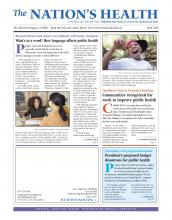Report: US climate adaptation work needs to be accelerated
Work on climate adaptation is growing in the U.S., but not quickly enough considering the threats posed by climate change, according to a new report from the Kresge Foundation.
In “Rising to the Challenge Together,” authors assessed the state of the climate adaptation field, finding that issues of climate adaptation and resilience are challenges for decision-makers across the country. And while efforts related to climate adaptation — defined as the management of and preparation for the impacts of climate change — are happening across the country, the report describes the field as largely crisis-driven and yet to sufficiently address issues of social equity. In addition, according to the report, the field lacks consistent funding and agreed-upon best practices.
The report recommends “aggressive acceleration” of adaptation planning, coordination across jurisdictions and implementation among advocates, planners and funders.
“This report highlights the urgency of building climate adaptation as a field of practice,” said Lois DeBacker, MPA, managing director of the Kresge Foundation’s Environment Program, in a news release. “It is critical to expand the number of people who understand the imperative of acting quickly, which actions yield the best and most effective protections against climate change-fueled events and how to approach climate resilience in ways that advance equity.”
For a copy of the report, visit www.kresge.org.
Vaccine reminders boost immunization rates
Reminding people about getting their vaccines can increase the rate of immunization, according to a systemic review of 75 studies from 10 countries.
Published in January in the Cochrane Database of Systematic Reviews, the studies analyzed the effects of immunization reminders on adults and children as well as the effect of reminders sent via letter, telephone, text message or a combination of delivery methods. Researchers found reminders and recall systems increased the number of children and adults receiving any kind of immunization. In particular, about 8 percent more people received a vaccination following a reminder compared with no reminder.
“Even a small effect of patient reminders and recalls, when scaled to a whole population, could have a large beneficial effect on public health,” study co-author Julie Jacobson Vann, PhD, MS, RN, an assistant professor at the University of North Carolina-Chapel Hill School of Nursing, said in a news release.
- Copyright The Nation’s Health, American Public Health Association









